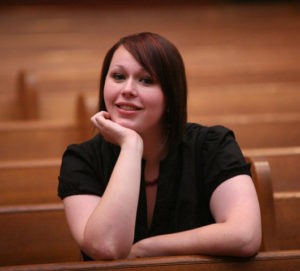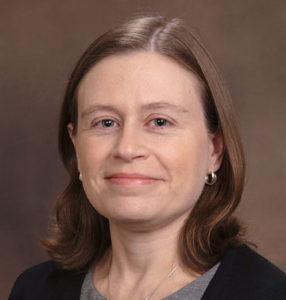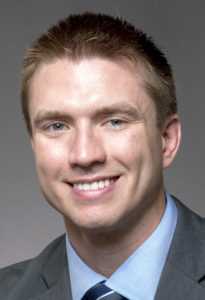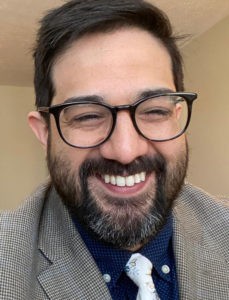It’s amazing what four weeks off can do for a minister after a year spent leading a church through a pandemic, said Leah Grundset Davis, pastor of Ravensworth Baptist Church near Washington, D.C.
“I came back with more bandwidth, and I came back not having to multitask for a month, and that was very life giving and it helped me identify some priorities in how I moved forward from there,” said Davis, who started her month of renewal leave at the end of April.
She was among the many clergy who guided the transition to virtual programs and worship, visited members on their driveways and porches and grieved the lost ability to provide in-person pastoral care and fellowship.

Leah Grundset Davis
During her leave, she worked with a coach on priorities, spent some time reading and devoted more attention to the virtual schooling of her then-kindergartener and second grader. “It was very helpful to be out of the office so I could have a more concentrated focus and not be pulled in so many directions,” she explained.
Davis said she hopes more congregations will consider granting their ministers what many are calling “renewal leave” or “mini-sabbaticals.” There is evidence on social media and in clergy groups of an increasing number taking two- to four-week breaks.
“I think it’s something that is growing because this has been a time of constant recreating and people need a space just to process,” Davis said.
Earlier this year, clergy and congregational coach Laura Stephens-Reed foresaw the need pastors would have for intentional time off after the heavy lifting they had done in 2020.
“I believe all pastors will need at least four consecutive (paid) weeks for recovery and replenishment once they have access to safe avenues for it,” Stephens-Reed said in a January blog post.
She told pastors it may take some creativity to take time off during the pandemic, when many pastors saw vacations and sabbaticals canceled out of necessity.

Laura Stephens-Reed
“Maybe this means your judicatory or denomination steps in with worship services they have recorded. Maybe you recruit seminarians or retired pastors to cover for you. Maybe you task your key laypeople with preaching and other essential functions. Whatever it takes, you need and deserve renewal leave,” she advised then.
But the practice may go well beyond ministry renewal to life-saving for many pastors, said Jakob Topper, senior pastor at NorthHaven Church in Norman, Okla.
Last year was challenging in its own right for the congregation, even without the effects of the COVID-19 pandemic. High staff turnover, a major budget shortfall and several deaths in the congregation had to be handled along with the transition to virtual worship and responses to a growing civil rights movement and a super-heated partisan divide.
Topper said his mental health was stretched even further soon after his August 2020 BNG opinion piece on pastor suicide evolved into a ministry of providing Zoom memorial services for pastors who had taken their own lives.
“This turned out to be a great window into my own soul to see how unhealthy I was getting. I resonated with the people I was doing funerals for, and it scared me,” said Topper, who added he was ignoring the guidance he had given in the BNG article.
“I knew if I didn’t take my own advice and step away, I could be in danger. I don’t think I was suicidal, but there was a time when none of those other pastors felt suicidal, either.”

Jakob Topper
Topper took a four-week leave of absence. The time away, therapy and spiritual direction he received, he said, “saved my life.”
“For me, it was a very dramatic mind shift and a huge shift in my mental outlook. I was able to take a breath and let it happen — I knew the way I was doing ministry wasn’t working.”
Topper urged churches to encourage and support their clergy in taking time away, seeking therapy and other forms of self-care.
“I just don’t think people can afford not to,” he said, echoing a later opinion piece for BNG. “Pastors far overestimate how strong and mature they are, and eventually it catches up with us.”
Some pastors already were at the end of their ropes when the coronavirus outbreak occurred and further delayed needed time off.
Some pastors already were at the end of their ropes when the coronavirus outbreak occurred.
“I should have had a sabbatical years ago,” said Aurelia Dávila Pratt, senior minister at Peace of Christ Church in Round Rock, Texas.
Her congregation came through with four weeks off in May. It wasn’t considered a sabbatical, but it was a blessing Dávila Pratt said she used to rest, have intentional family and friend time and to work on a book manuscript.
“It definitely poured into my empty cup,” she said. “I knew I was burning out because I had other creative projects I was doing at the same time, so it poured into me some renewed energy.”

Aurelia Dávila Pratt
Another lesson revealed by the pandemic was that the church’s pastors and congregation need to continually look for ways to slow down, Dávila Pratt said. “We’re trying to get away from just working to produce and exist. We want to push against the whole productivity culture where you can’t ever take a break. We are saying this is the reality of our community. We all need time off because everyone is tired from this pandemic, not just the pastors.”
Having the full support of lay leadership for recuperative leave sends a powerful message, as well, said Brent Newberry, pastor of First Baptist Church of Worcester, Mass., who begins a four-week time of renewal Aug. 23.

Brent Newberry
“It was unanimous. They said, ‘Go take it.’ They wanted me to be in a good place, to be proactive in recharging and renewing,” he said. “That was very moving to me that they all signed on to the letter affirming my leave.”
Newberry said his time away is coming at a critical moment, as he has recently felt the onset of fatigue from more than a year of pandemic-related stress, including from being on a heightened on-call status.
“Of course, being on call is expected. But when it’s a global trauma with the possibility it could be the entire congregation that is at risk, that is significantly more intense,” he said.
Related articles:
Returning from sabbatical, I was reminded: I am unnecessary but not insignificant | Opinion by Greg Jarrell
7 things I (re)discovered on sabbatical | Opinion by Jason Edwards
No church wants the Moby Dick of ministers | Opinion by Erica Whitaker


